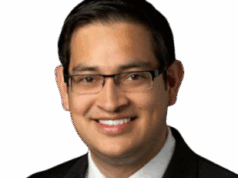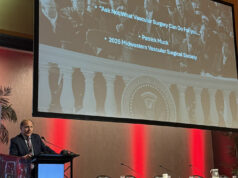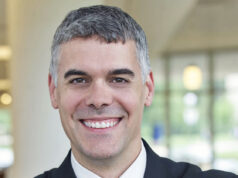
“Collaborate, innovate, mentor, champion DEI [diversity, equity, and inclusion] and relish the opportunity to form deep connections with our amazing patients.” This was the key take-home message delivered by Andres Schanzer, MD, chief of vascular surgery at the UMass Memorial Medical Center in Worcester, Massachusetts, during his Presidential Address at the New England Society for Vascular Surgery (NESVS) 49th Annual Meeting in Newport, Rhode Island (Oct. 14–16).
The topic of Schanzer’s address was “creating a bold new future for vascular surgery,” and one of the keys to this—according to the president—is to focus on the patients. “They are the ones who inspire us to get up each morning, and deal with the challenges that we all encounter every single day.” He expressed his belief that the “rich, long-term relationships” with patients that are “unique to vascular surgery” is what will keep the field “thriving.”
He added that, while the cure for burnout is “different for everyone,” for him it is rounding on his patients once in the morning and once before he heads home in the evening. “That is what keeps me going.”
Schanzer also placed a spotlight on DEI as another crucial point of focus. “As providers, we need to build a workforce that looks more like our patients,” he stressed. “This is not about committees and statements and tweets, it is about hiring, promoting, paying, and acknowledging the indisputable fact that diversity makes us better. If you are not bringing underrepresented groups to the table in whatever leadership capacity you have, then you are the problem.” The president also remarked on the wider importance of championing DEI: “We need to do this not for ourselves, but for our patients, for our trainees, and for our society.”
Schanzer had a specific message for the trainees and young faculty who are the future of the vascular surgical specialty and will “undoubtedly face challenges” in the years to come. “Remember this,” he said: “Try to take yourself a little less seriously. I know that I need to do this often.”
In closing, Schanzer summarized: “It is not about any one person or any one career, it is certainly not about mine. It is about our field and advancing it by sticking to and leveraging these key anchor values that makes vascular surgery so special. We can create a bold new future for vascular surgery: it’s go time.”












